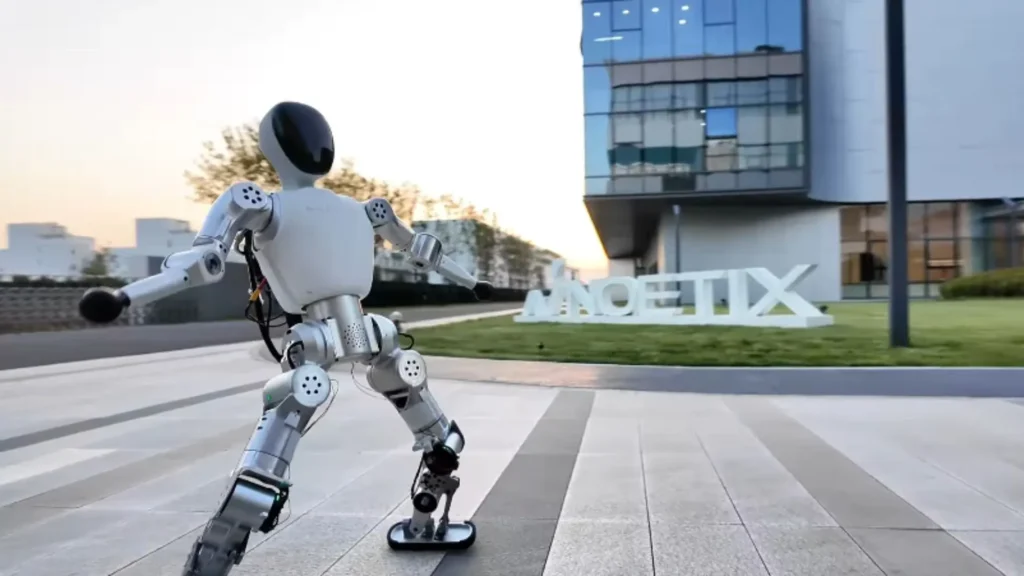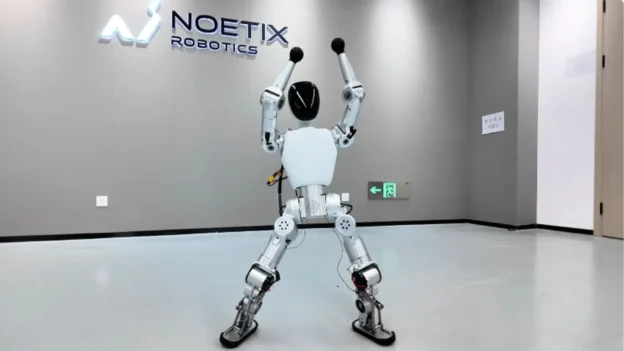With a hands-on approach and a price tag that puts it on par with a smartphone, start-up Noetix Robotics officially unveiled “Bumi,” their new humanoid robot robot, measuring 94 centimeters and weighing 12 kilograms.
Launched at RMB 9998 (approximately USD 1375), the model is designed to be integrated into home and educational environments, offering programming, learning and family interaction functions.
Why so economical?
One of the key factors in achieving this price point has been the verticalization of development. Instead of relying on external suppliers, Noetix designs the controllers and main modules in-house, which reduces costs and optimizes performance. In addition, most of the components, including Rockchip processors and sensors, are sourced in China, favoring an efficient and controlled supply chain.
Bumi is neither a heavy-duty robot nor a total home automation robot. Its purpose is educational and social. Its size was strategically chosen to avoid a sense of strangeness among children and to facilitate its integration into classrooms and living rooms.
Bumi weighs only 12 kg. Source: XRoboHub
The robot incorporates imitation and reinforcement reinforcement learning to achieve smooth and balanced movements, approximating the human gait.
A humanoid robot made of composite materials
To achieve a functional and lightweight robot, a reinforced composite structure was chosen at key points. This decision made it possible to reduce weight and use smaller motors and lighter batteries, with a multiplier effect on the overall production cost.

Pre-sales of Bumi are planned through channels such as WeChat and JD.com, with a timeline spanning from Singles’ Day to Twelfth Day. The company projects to reach a manufacturing capacity of thousand units per month by the end of 2025.
It currently has plants in Beijing and Changzhou, and a third facility is planned.
Open platform for developers
Bumi will be part of the Joy Inside 2.0 ecosystem, promoting its use as a platform for programmers and educators.
Noetix seeks to foster a community that expands the robot’s capabilities beyond the pre-established, opening opportunities in educational robotics and custom application development.
Source and photos: XRoboHub

